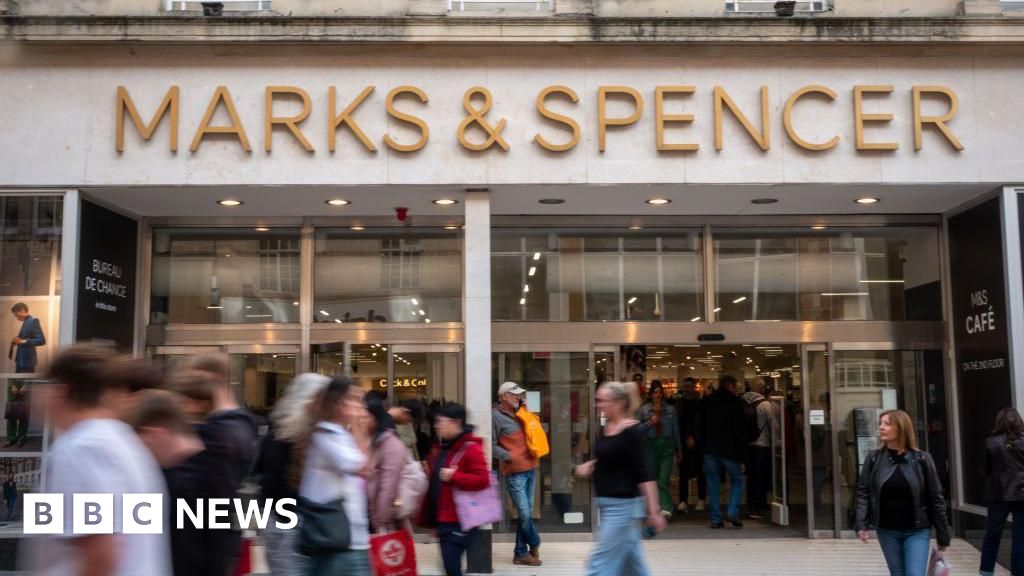ARTICLE AD BOX
By Becky Morton
BBC News
Image source, Getty Images
Image caption,The price of fresh milk is 13.2% more expensive than a year ago
The cost of living is continuing to climb, with prices in the UK rising at their fastest rate for 30 years, according to the latest official figures.
Factors including supply chain issues, the war in Ukraine, recruitment challenges and increased wages have come together to create a perfect storm of higher costs, as the country recovers from the Covid pandemic.
Prices are increasing on a wide variety of products - here are five things which have been particularly affected and some of the reasons why.
1. Petrol and diesel
Image source, Getty Images
Changes in prices at the pump are largely determined by crude oil prices.
Fuel prices were already rising before the war in Ukraine, as suppliers struggled to meet the growing demand post-lockdown.
But now the Russian invasion is making matters worse. The country is one of the world's largest oil exporters but Western countries have pledged to move away from Russian oil following the invasion.
The US has announced a complete ban on Russian oil imports, while the UK is to phase it out by the end of the year. The EU is also trying to reduce its reliance on Russian oil.
That means demand for oil from other producers has increased, leading to higher prices.
The UK imports just 6% of its crude oil from Russia, but 18% of its diesel.
The average price of diesel in the UK has risen 18% since the start of February, while the average cost of unleaded has risen by 11%.
2. Energy bills
Paul White, who owns a pizzeria in Eccles, says he will have to put up prices to cover his rising costs
The surge in global demand for energy following the relaxation of Covid restrictions has also pushed up the price of gas.
With Russia the world's largest natural gas exporter, the invasion of Ukraine has driven prices even higher.
Again, the UK gets relatively little of its gas from Russia but it's still affected by volatile global prices.
Energy bills rose further after the energy price cap - the maximum price suppliers in England, Wales and Scotland can charge households - increased by an average £700 a year at the beginning of April.
Meanwhile, businesses are also being affected by rising energy prices - and they're not protected by the price cap.
Paul White, who owns the pizzeria 6/CUT in Eccles, Greater Manchester, said his business was spending £500 more a week on energy bills, alongside rising fuel and food prices.
"We need to find an extra £1,400 a week to cover the costs of everything that's come on in the last few weeks," he told the BBC.
He says he will have to put up prices, and is looking to charge each customer about 50p to £1 extra to cover his rising overheads.
3. Furniture
Image source, Getty Images
The rising cost of raw materials, supply chain disruption and shipping costs have all made furniture more expensive.
Global shipping companies have been overwhelmed by surging demand after the pandemic so retailers have had to pay more to transport goods.
Construction supply firm Timco told the BBC it used to pay about $1,000 (£739) for a shipping container, but was now having to pay "north of $10,000".
The British Furniture Manufacturers Association, which represents the industry, said the cost of materials including hard woods, fabrics, foam and steel were all rapidly increasing and it warned the situation had "escalated significantly in recent weeks".
The association added that rising energy, fuel and labour costs were also affecting its members.
Some retailers have passed on these increased costs to customers.
At the end of last year, furniture giant Ikea said it had increased the average price of products in its UK stores by 10% due to rising supply chain costs.
The company also blamed raw material and transportation costs for the increase.
4. Oils and fats
Image source, Getty Images
The price of oils and fats for food increased by 7.2% in March alone and is nearly a quarter more expensive than a year ago, according to the Office for National Statistics.
Between them Ukraine and Russia produce most of the world's sunflower oil and the war has inevitably disrupted exports, leading to increased prices.
As a result of this, some food manufacturers have turned to to alternative ingredients, including rapeseed oil, which is grown by British farmers. The increased demand has meant higher prices for these oils too.
Tom Lock, founder of the British Snack Company, which makes hand cooked crisps, said his firm had switched to rapeseed oil to make its products.
"There's an incredible scramble. Everyone's doing the same thing. So while sunflower oil is impossible to get at the moment, rapeseed oil is possible but difficult to get as well obviously because everyone's having the same idea, as prices are skyrocketing at the moment," he told the BBC.
5. Milk and cheese
Image source, Getty Images
Fertiliser is another one of Russia's biggest exports and since the invasion of Ukraine prices have soared.
This has contributed to increased costs for farmers - and diary products are among those affected.
The UK's largest dairy, Arla Foods, says animal feed, fuel and fertiliser costs have all "rocketed" because of the crisis in Ukraine.
David Christensen, an Arla dairy farmer based in Oxfordshire, told the BBC his fertiliser bill had jumped from £350 to £900 a tonne and his fuel had more than doubled.
The price of fresh milk rose by 1.7% in March and is 13.2% more expensive than a year ago.

 3 years ago
44
3 years ago
44








 English (US) ·
English (US) ·